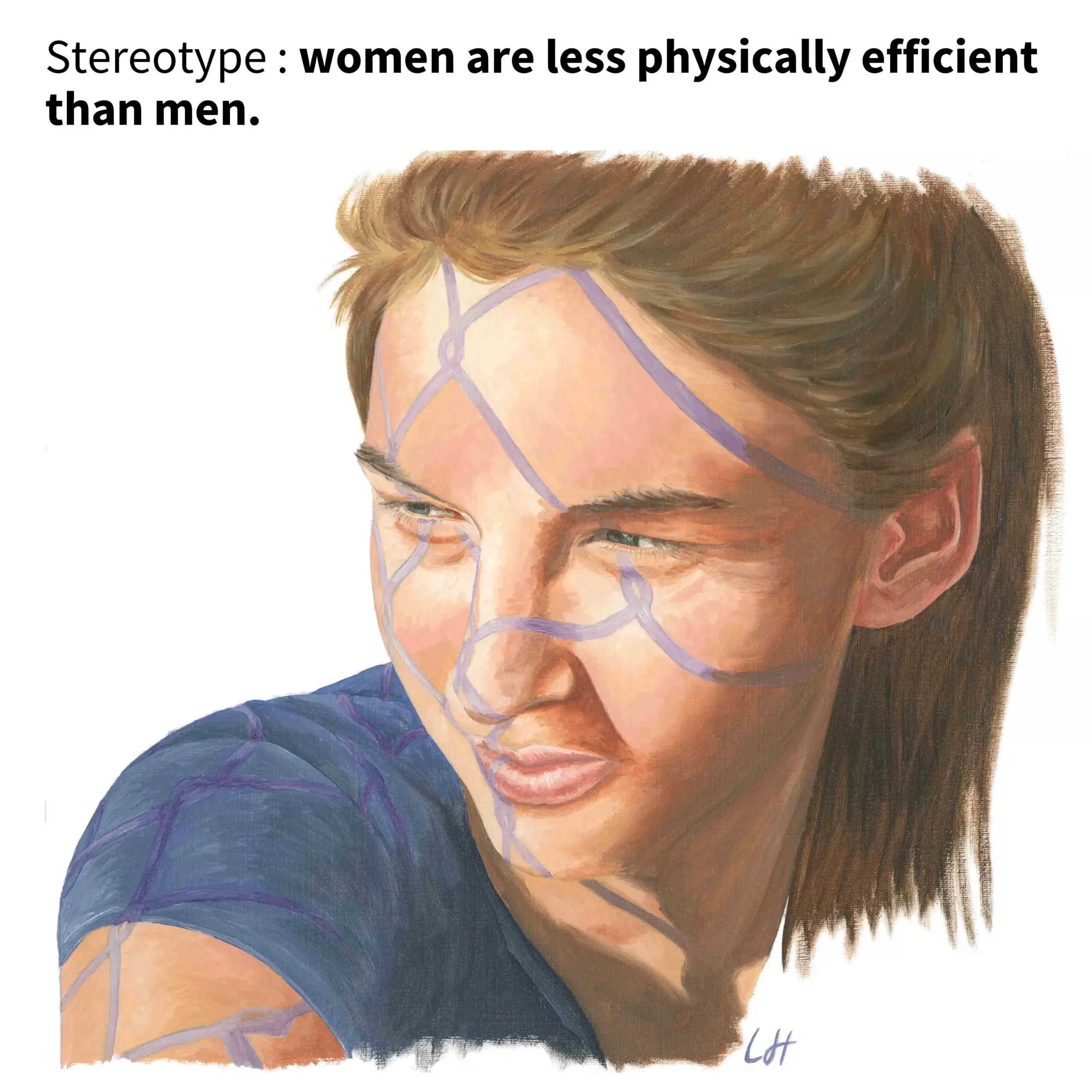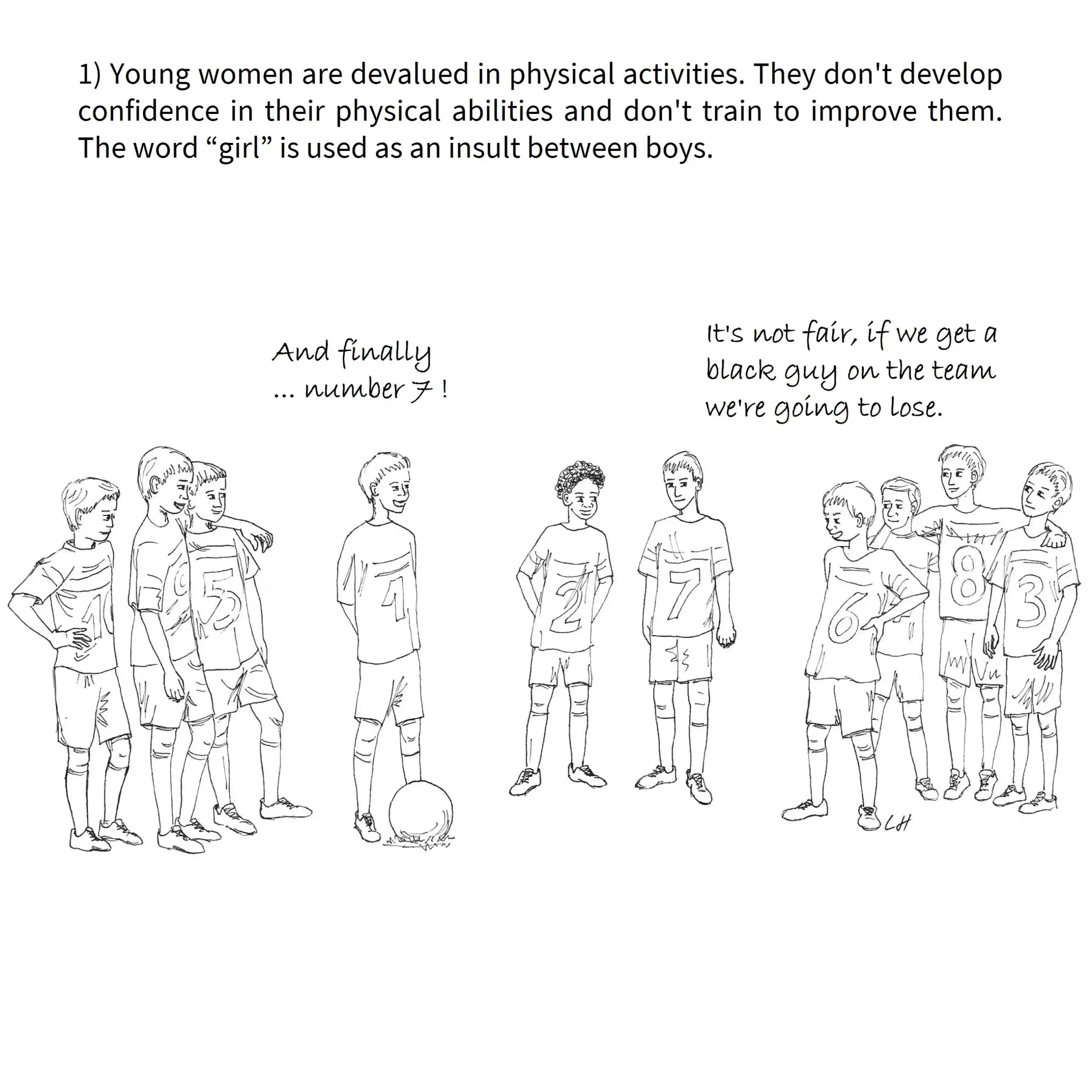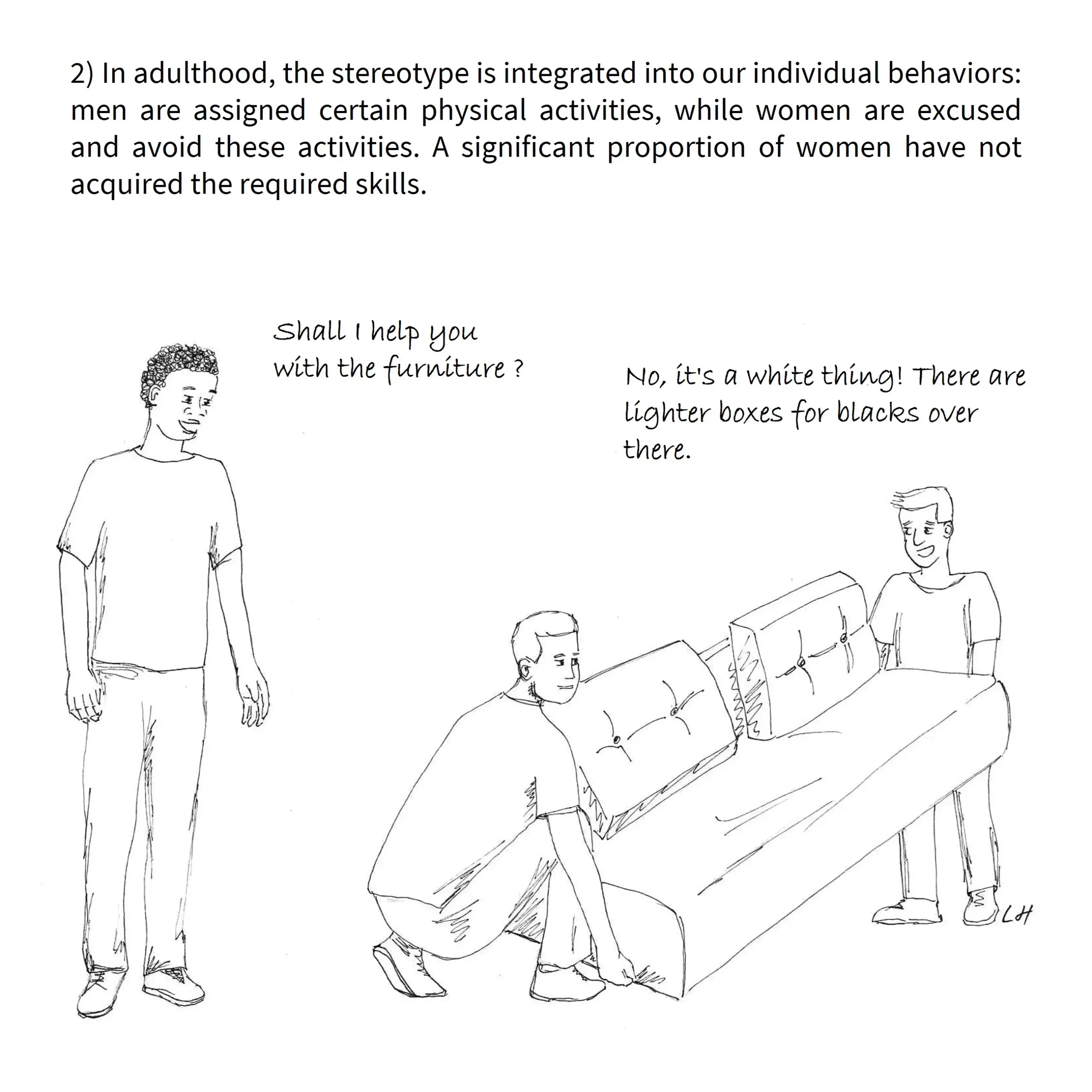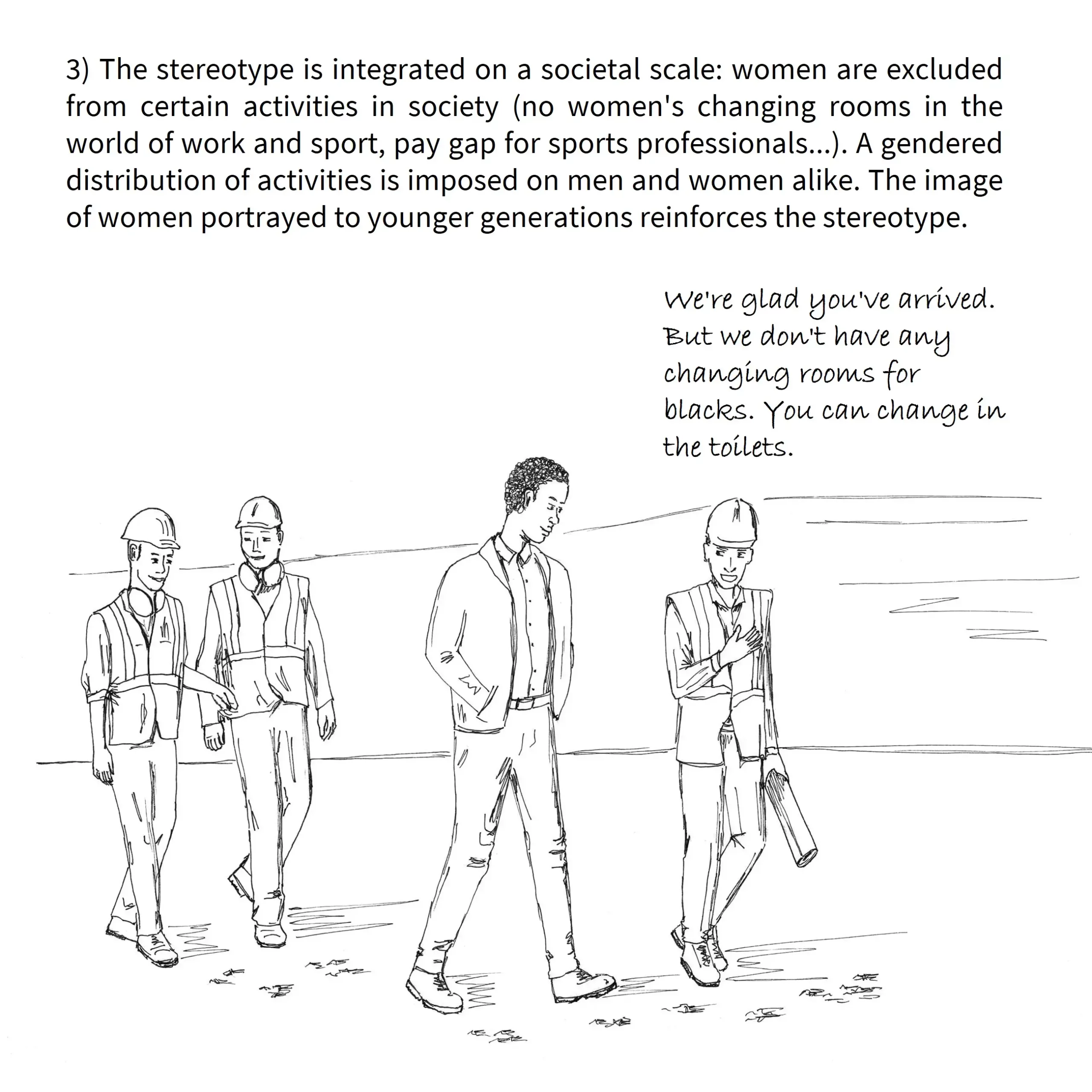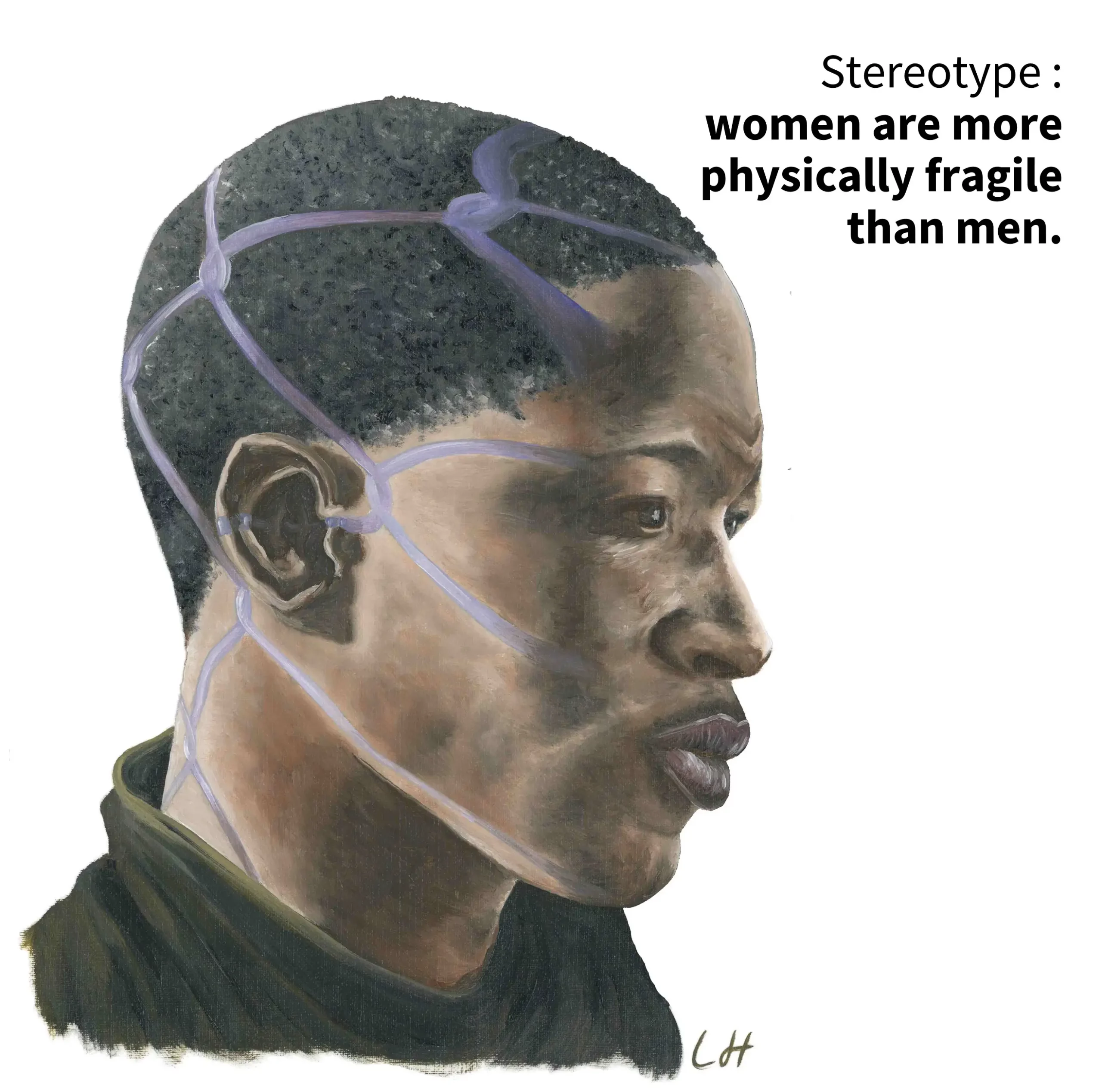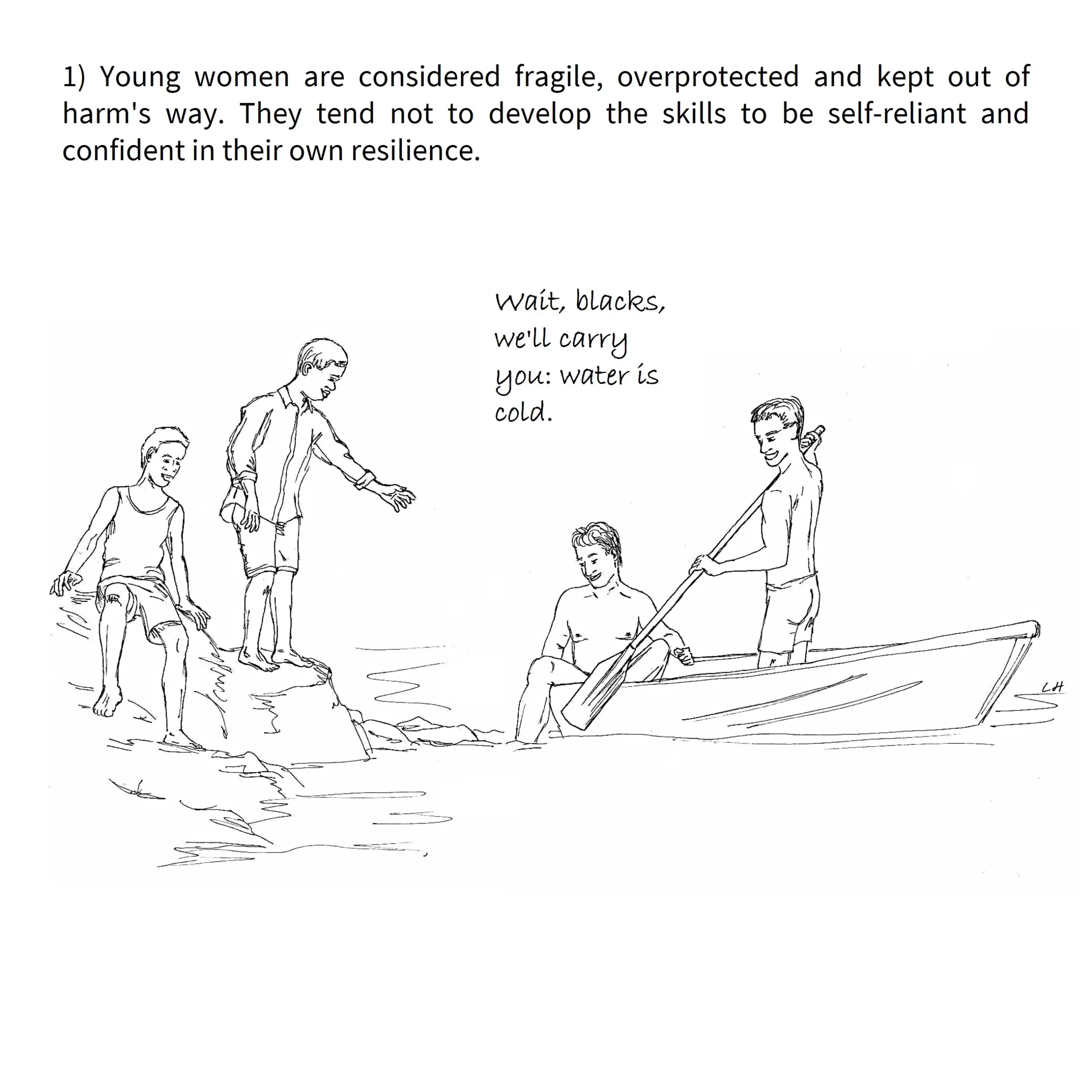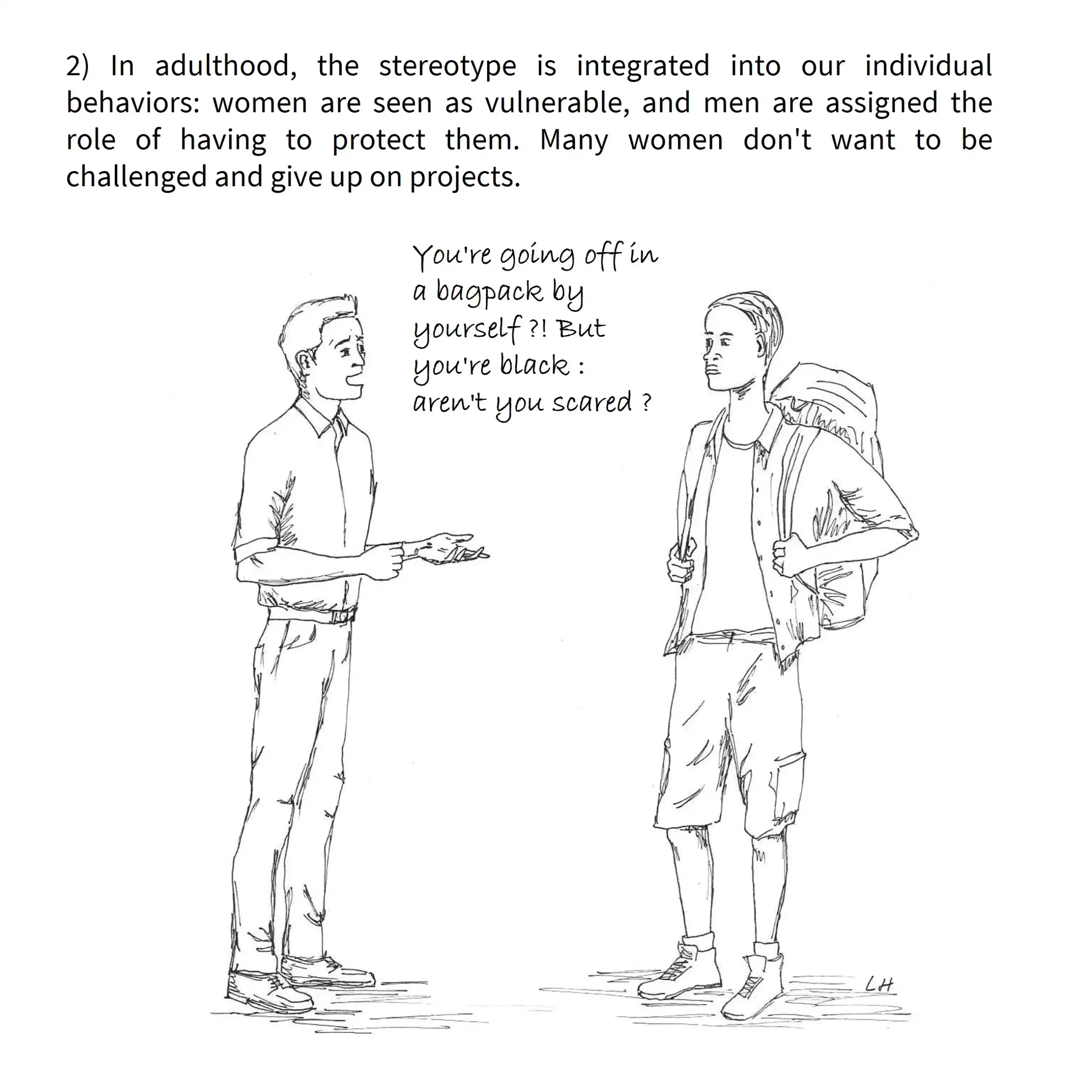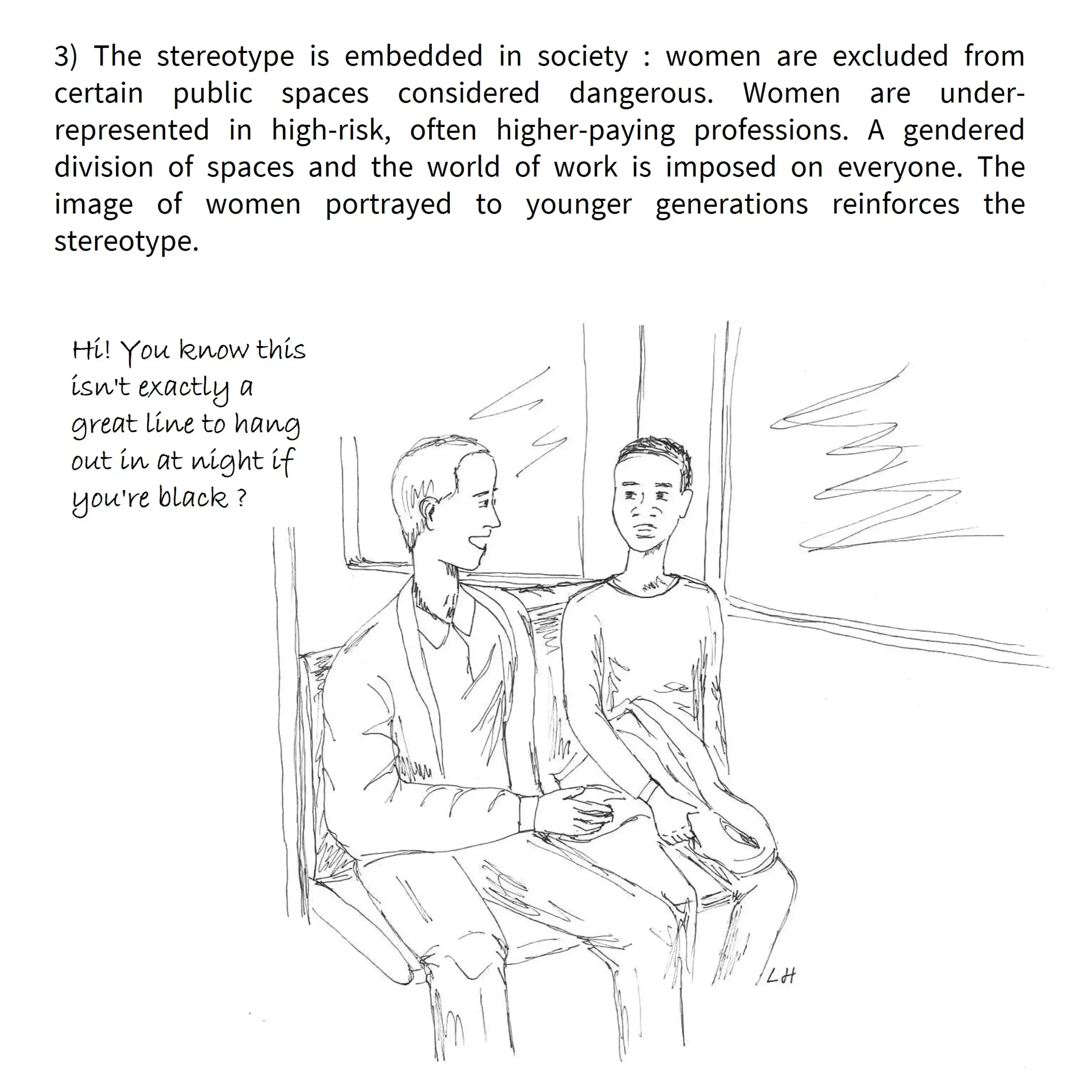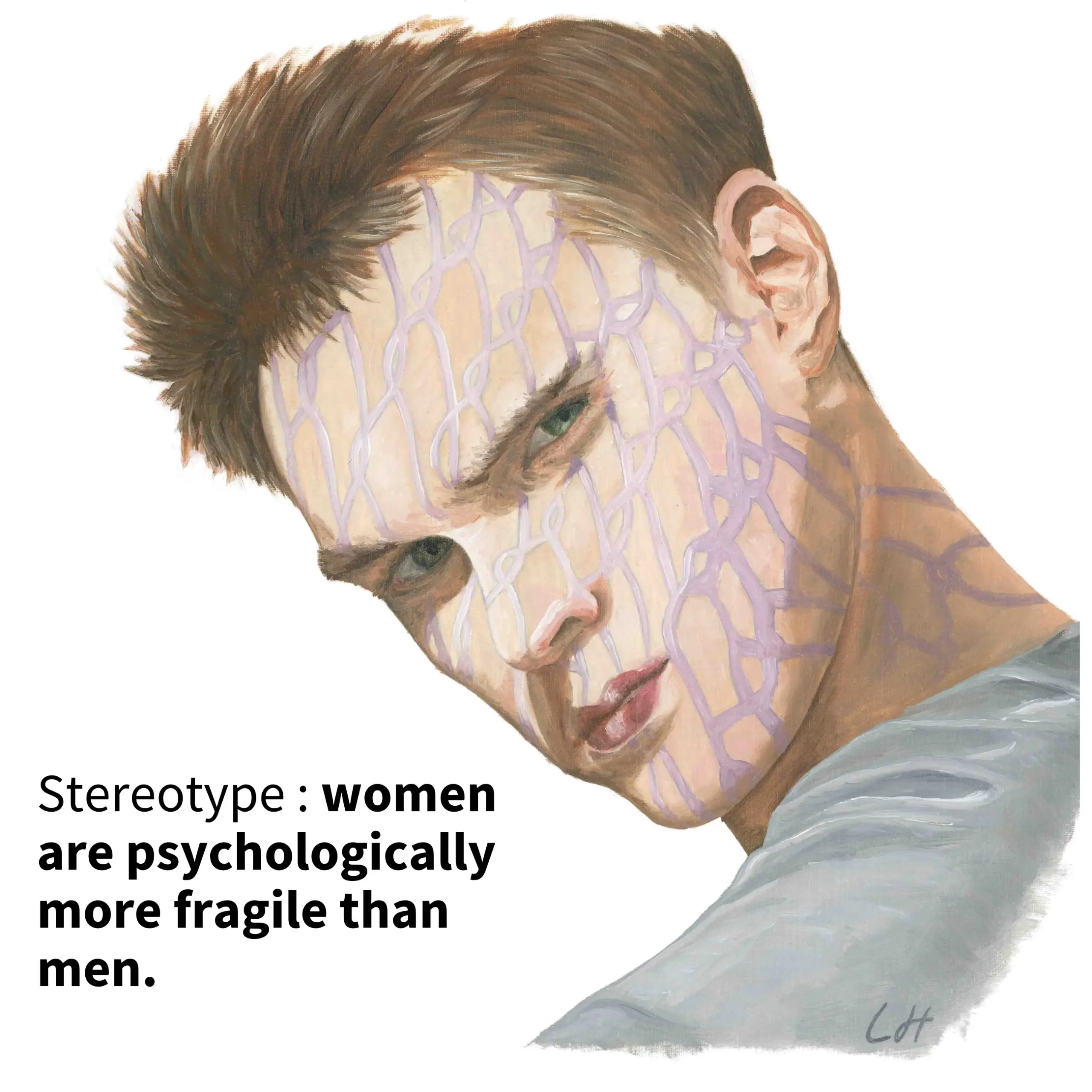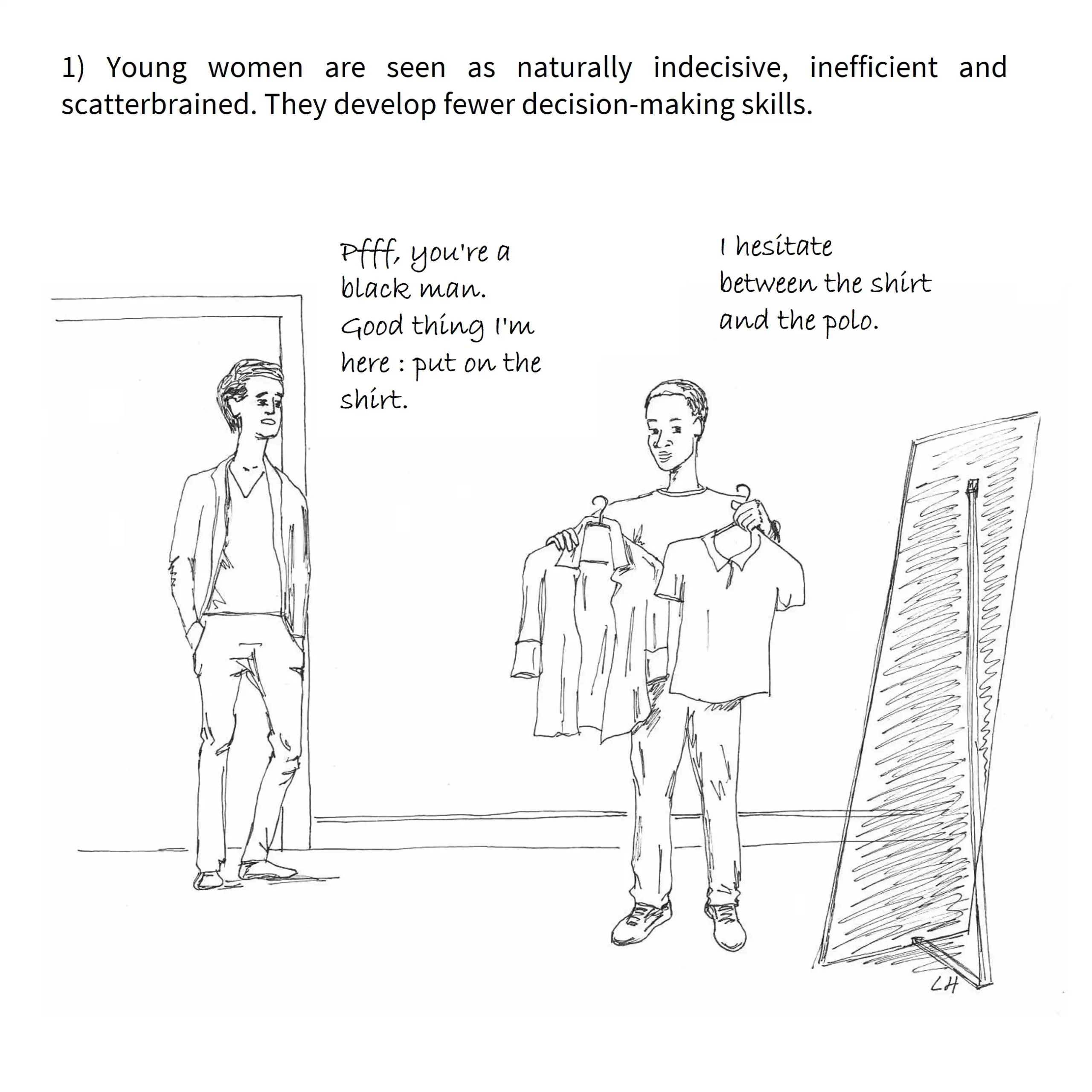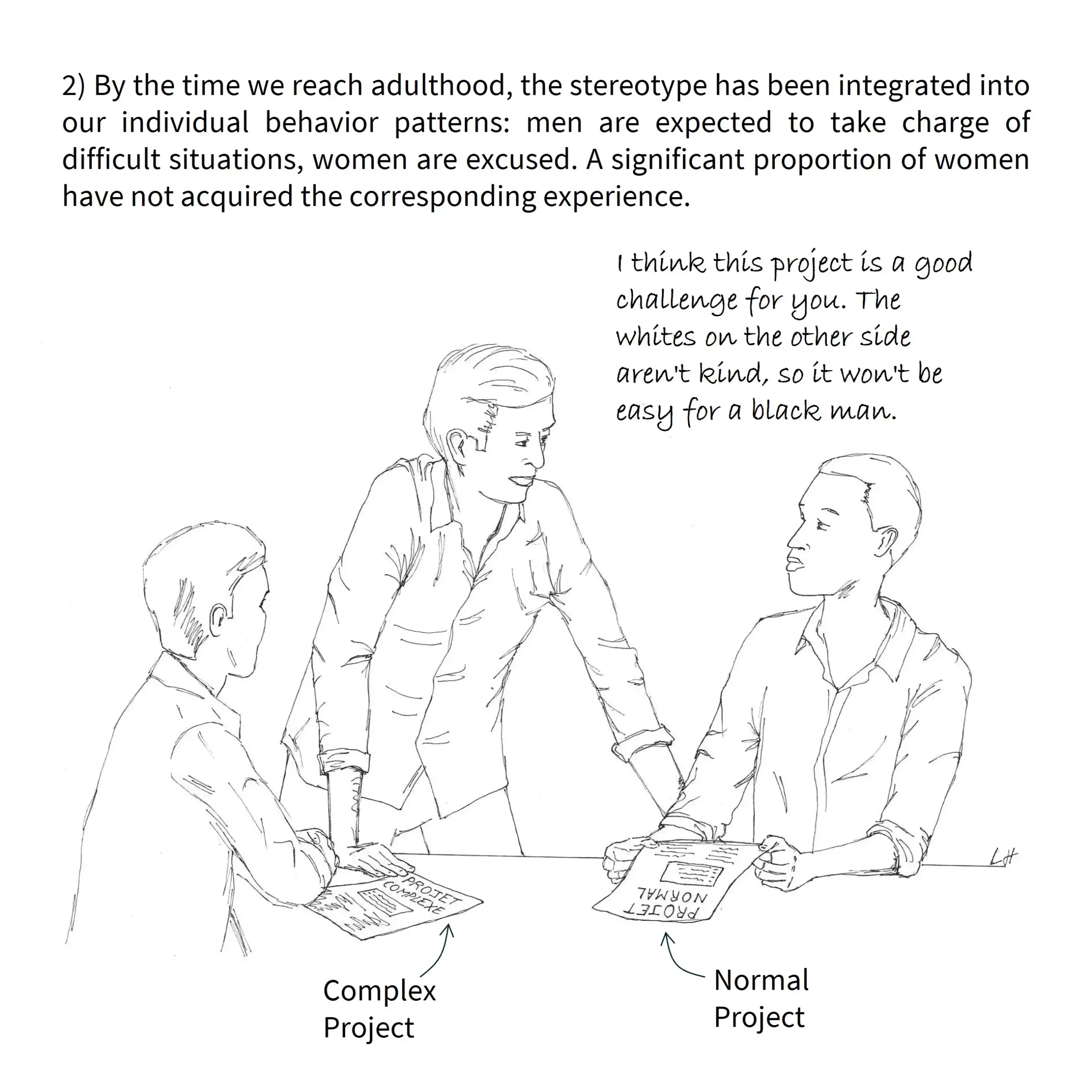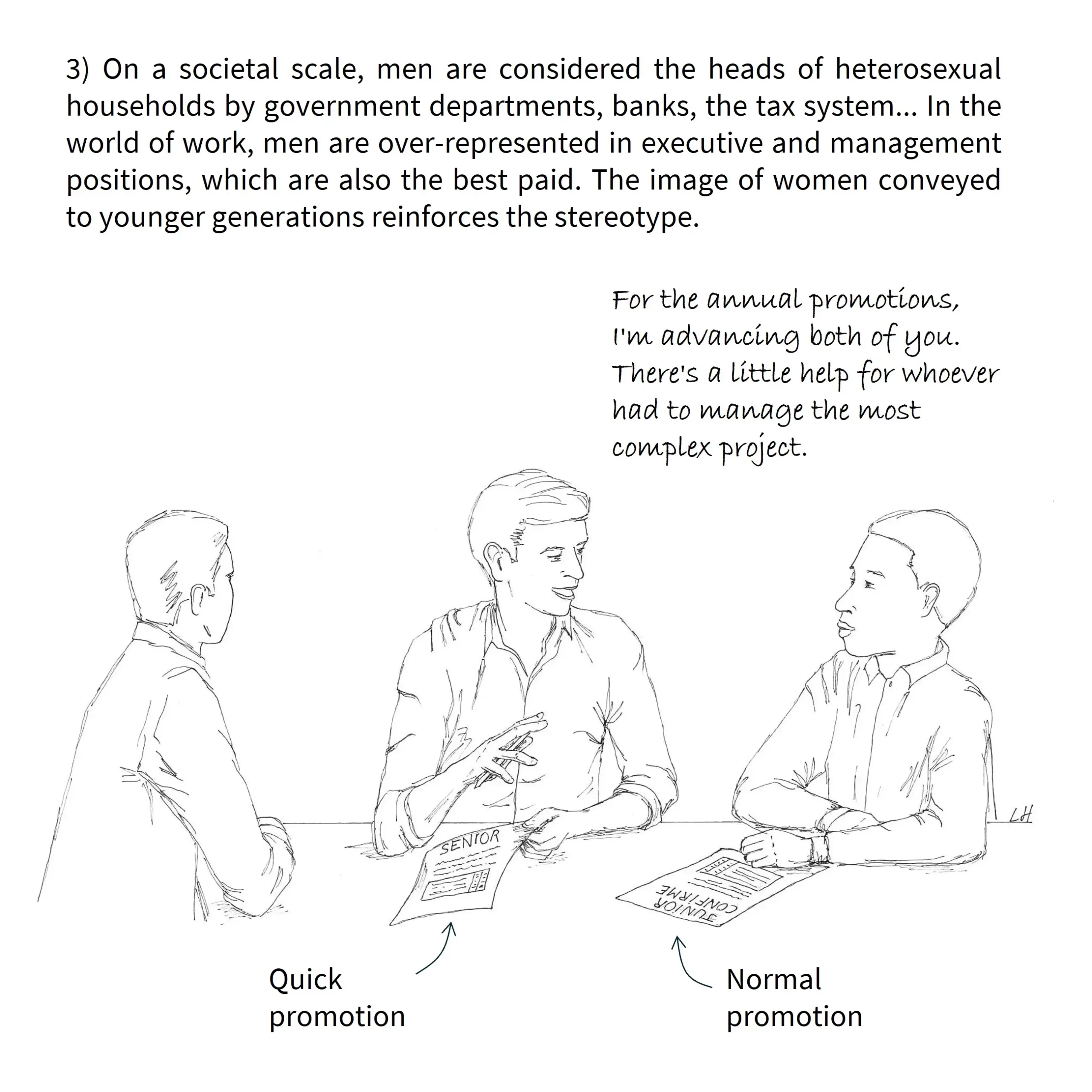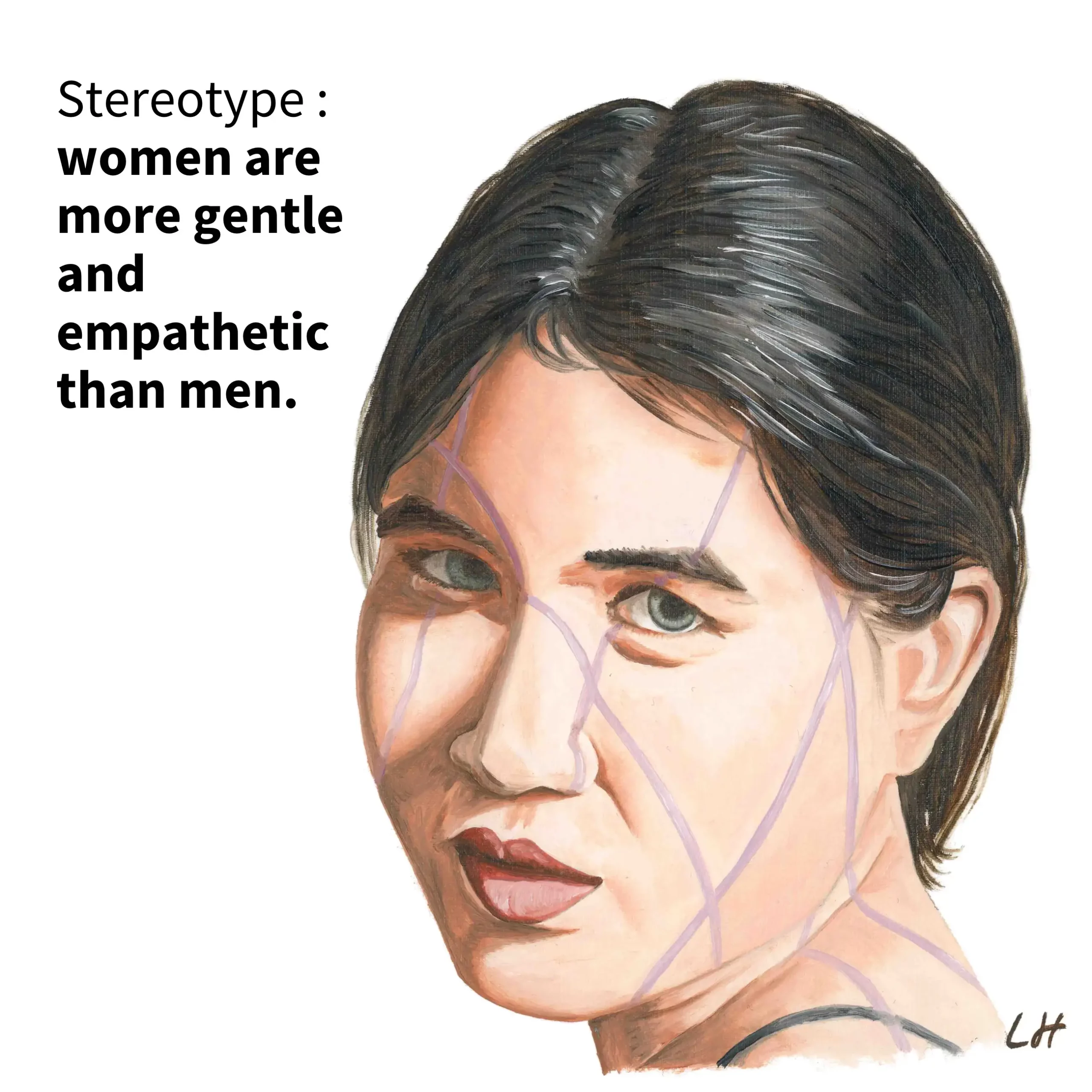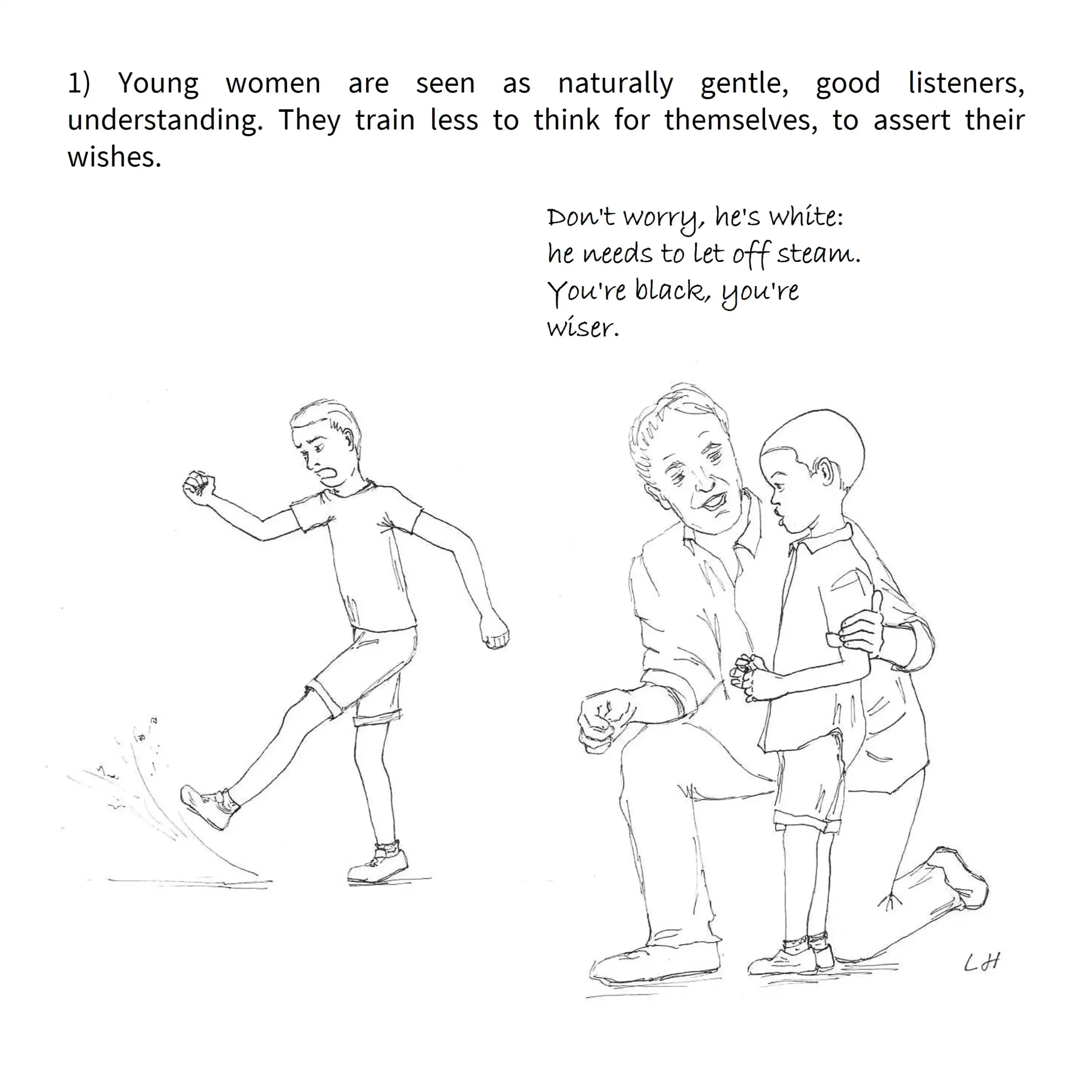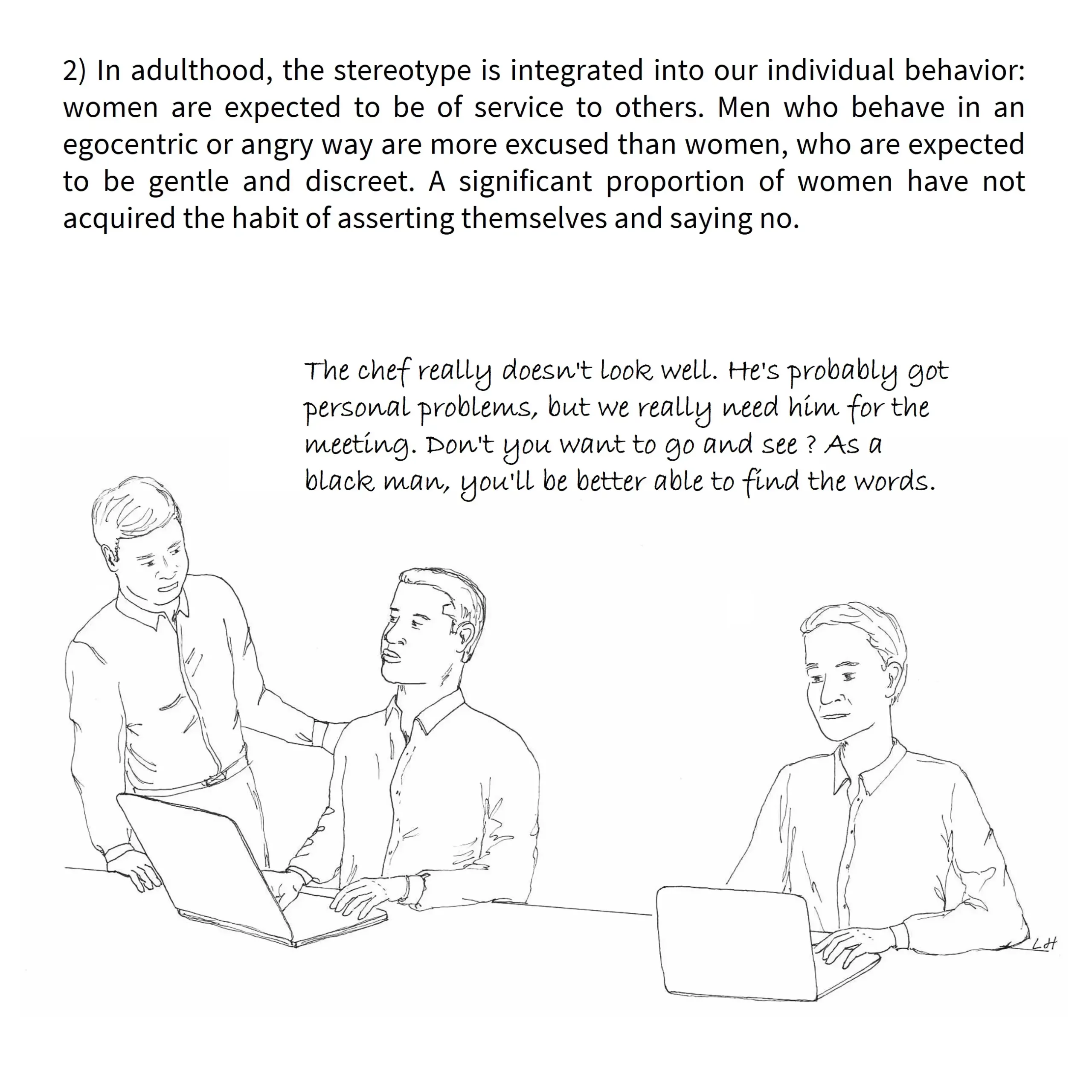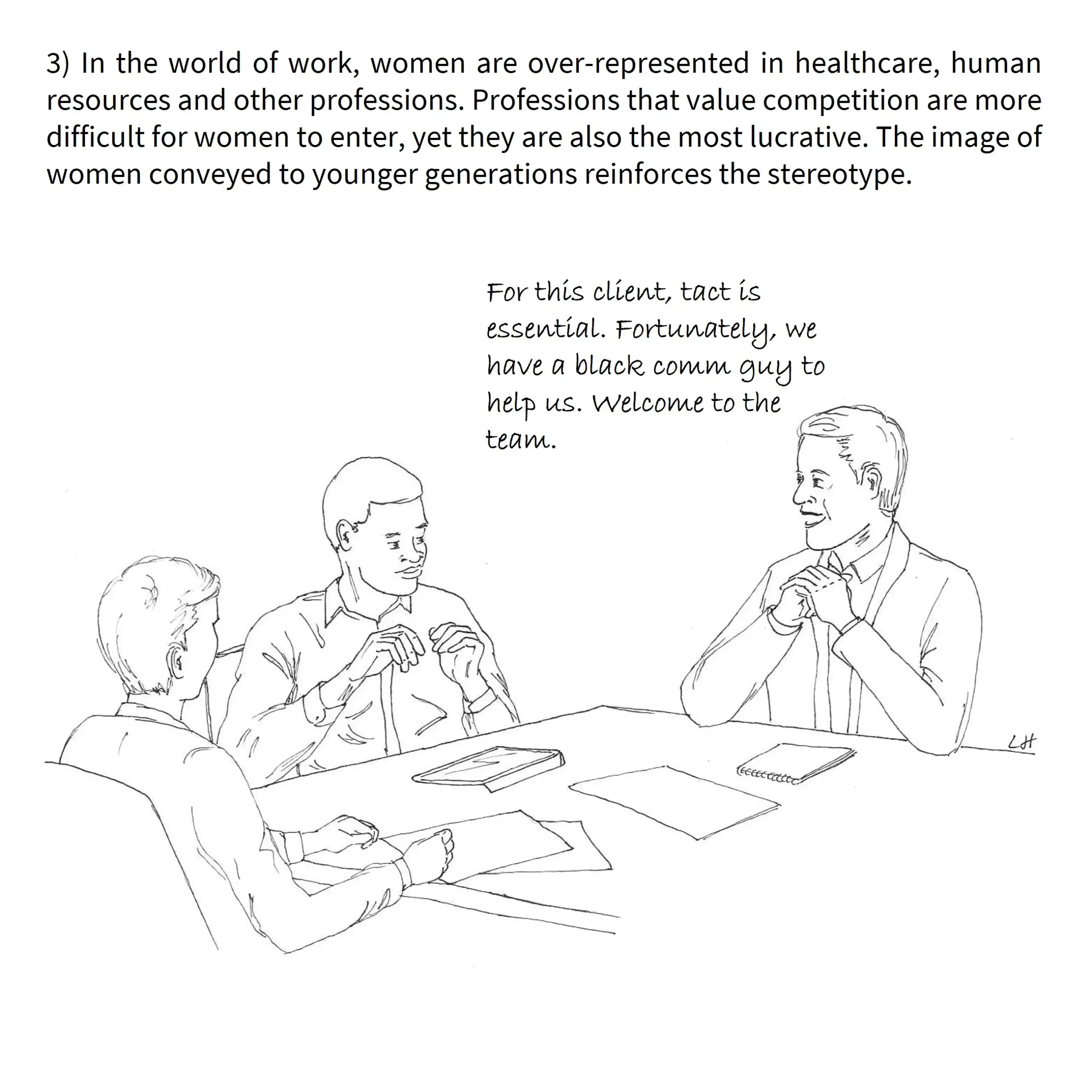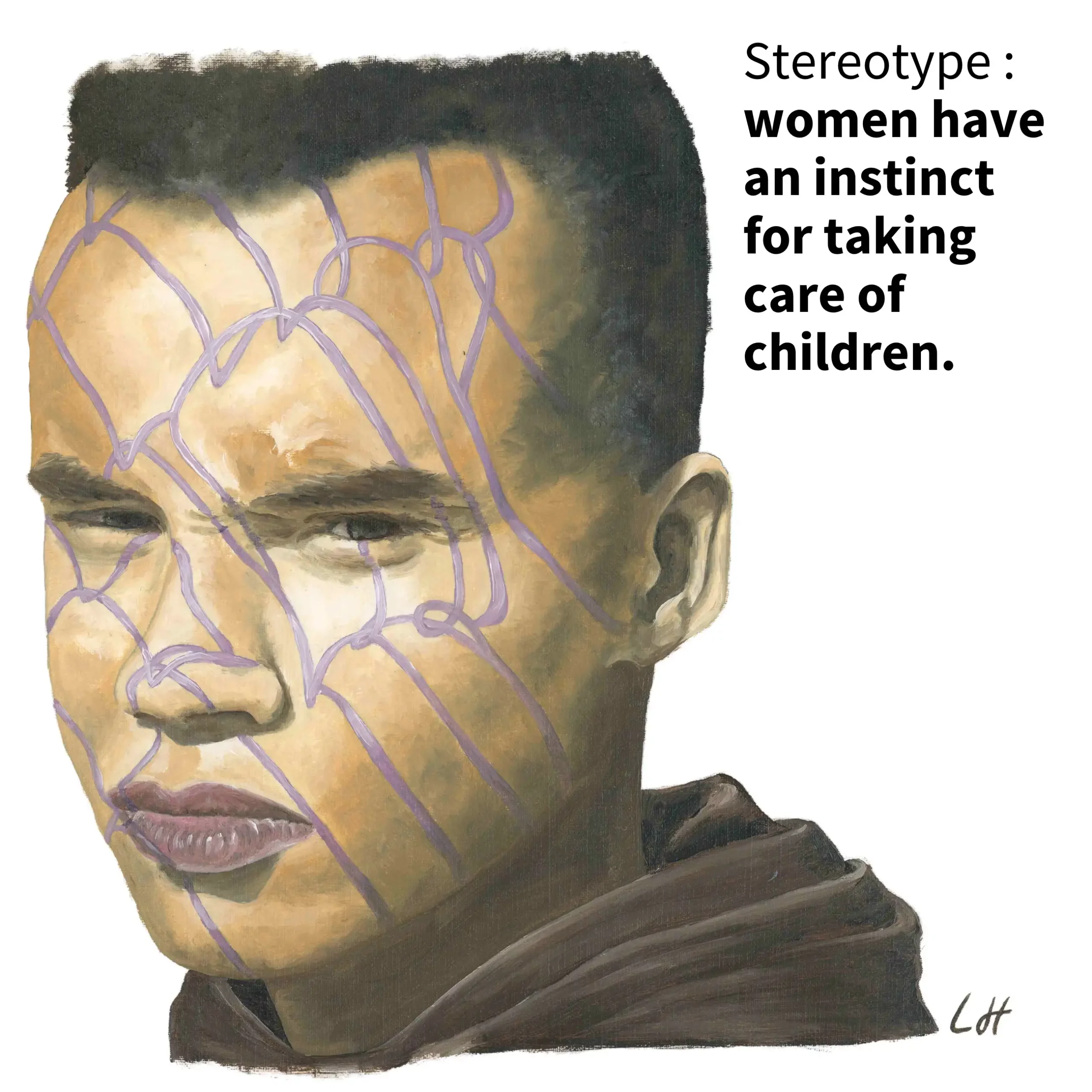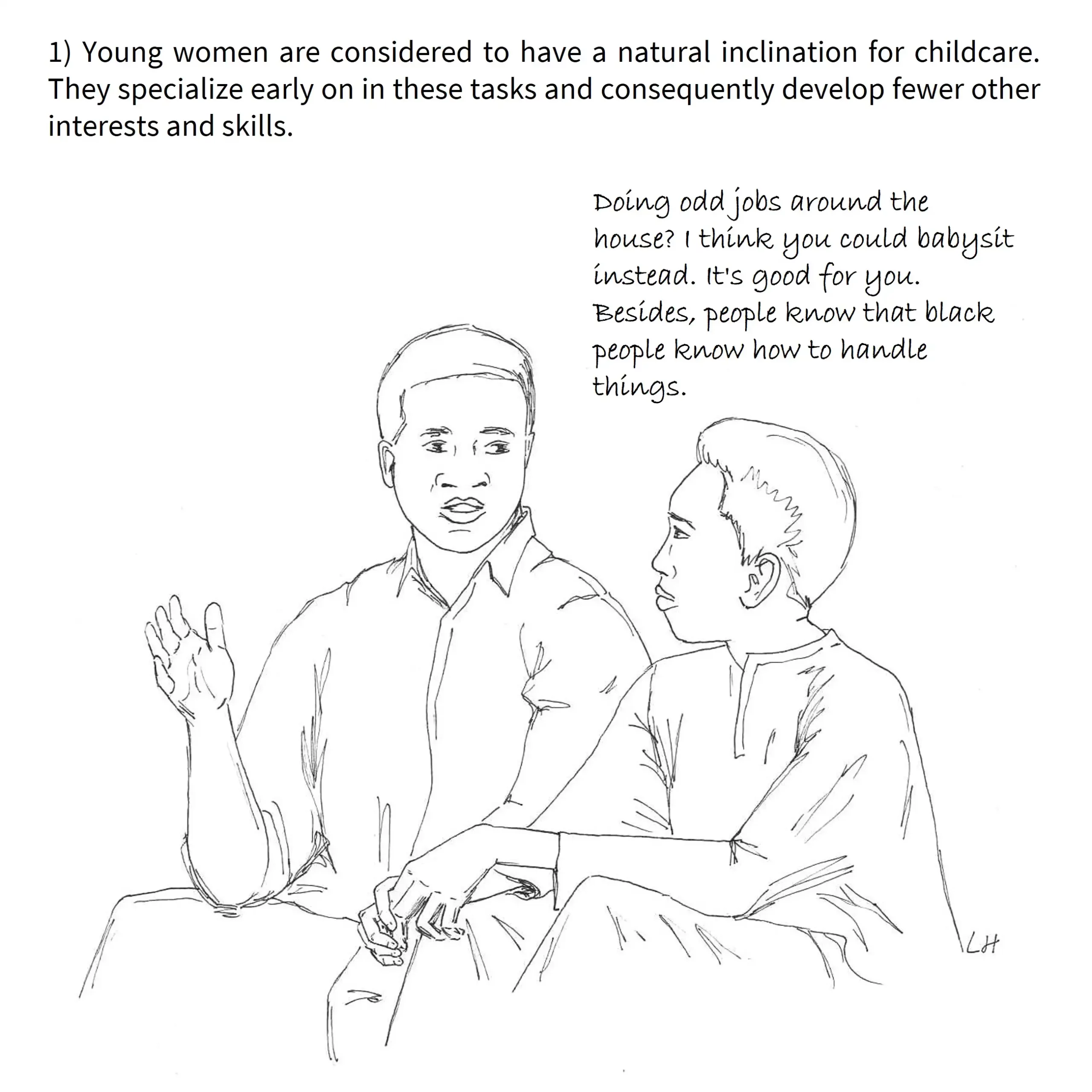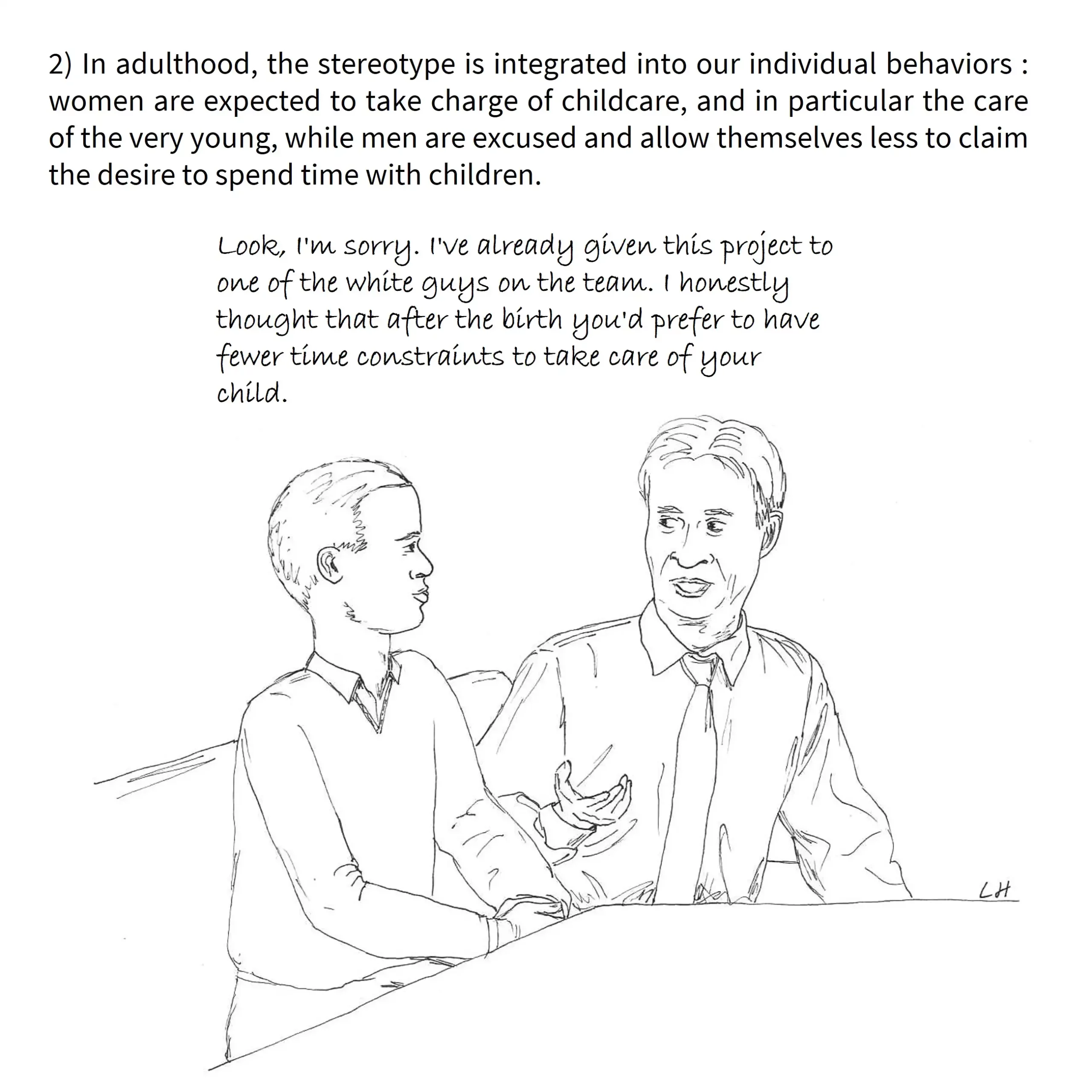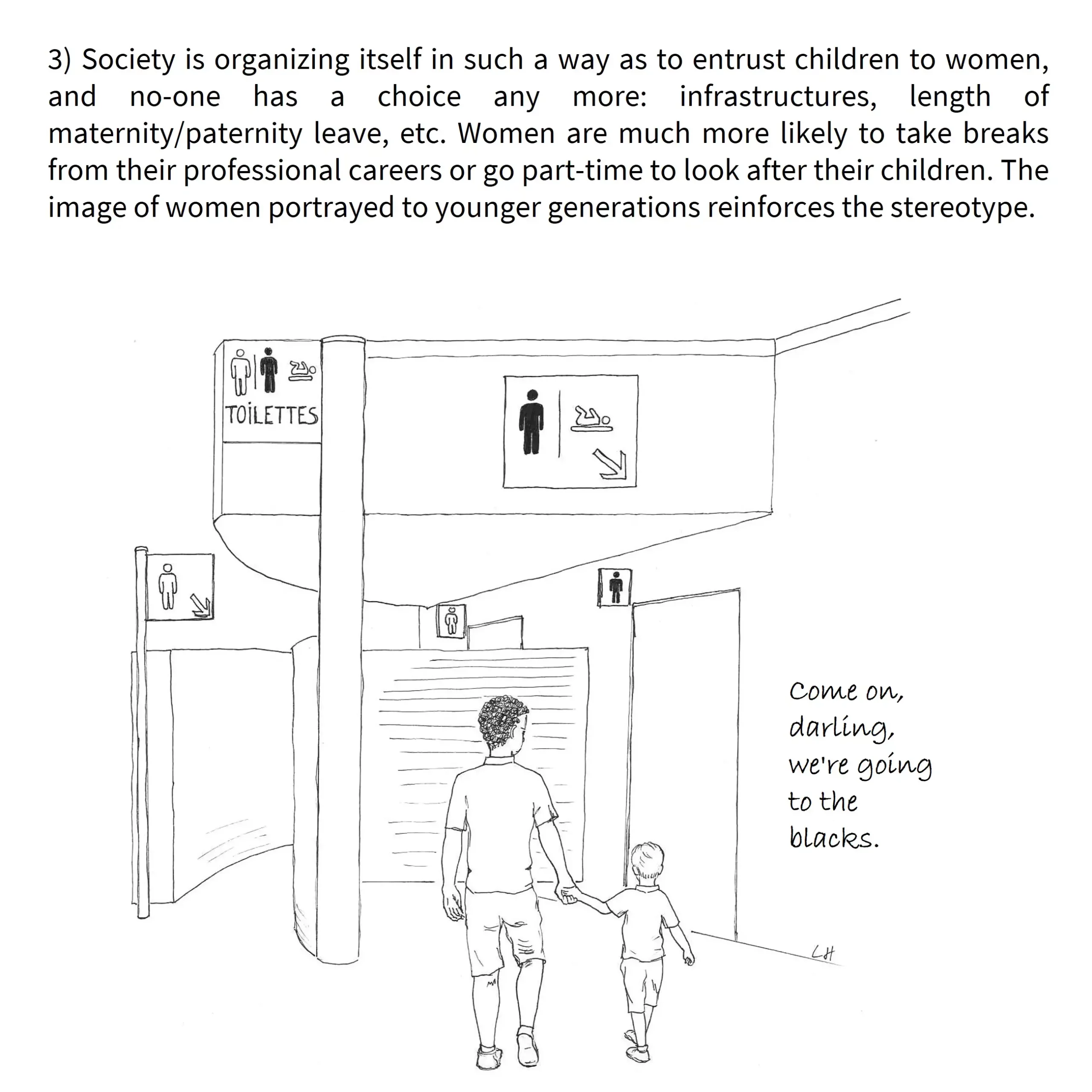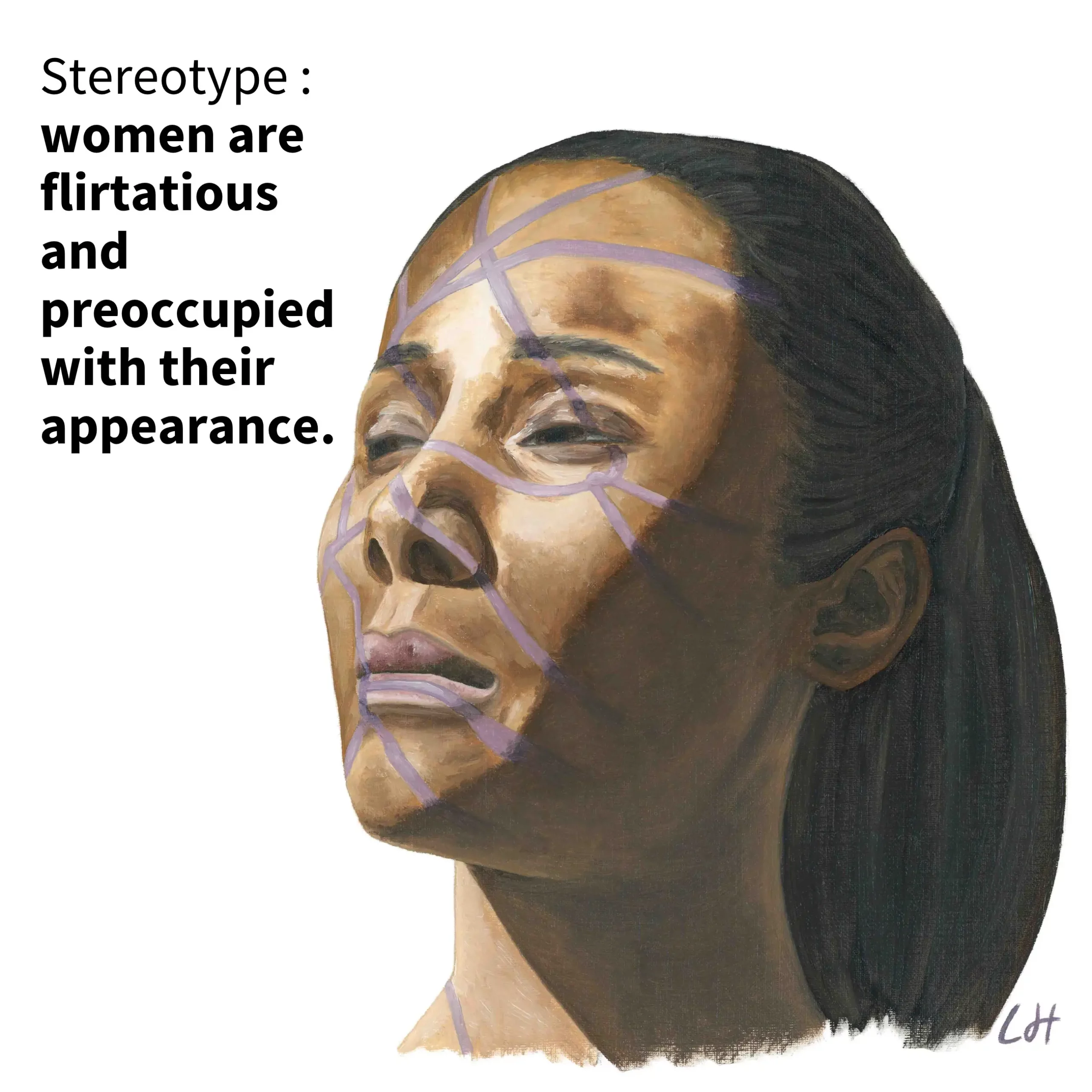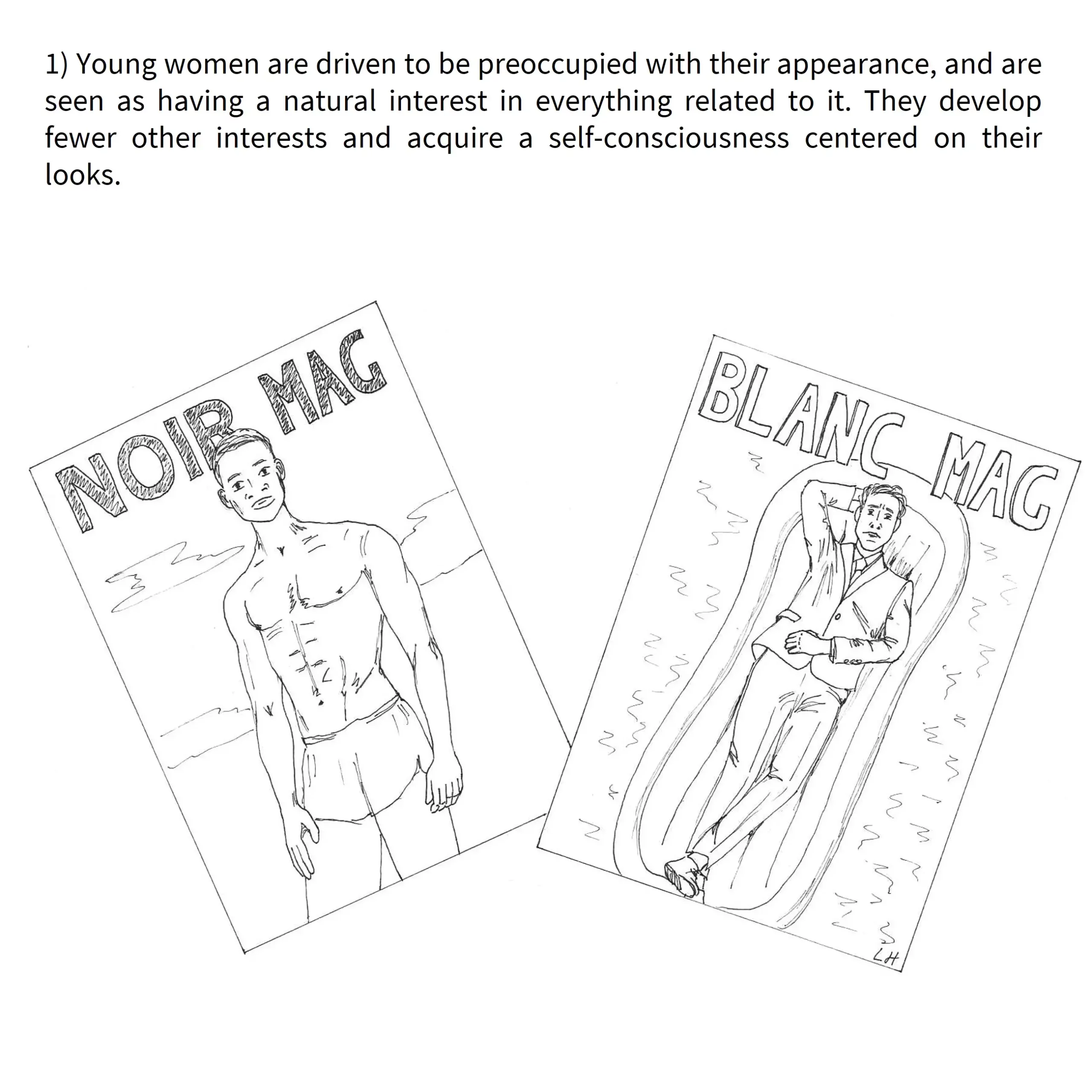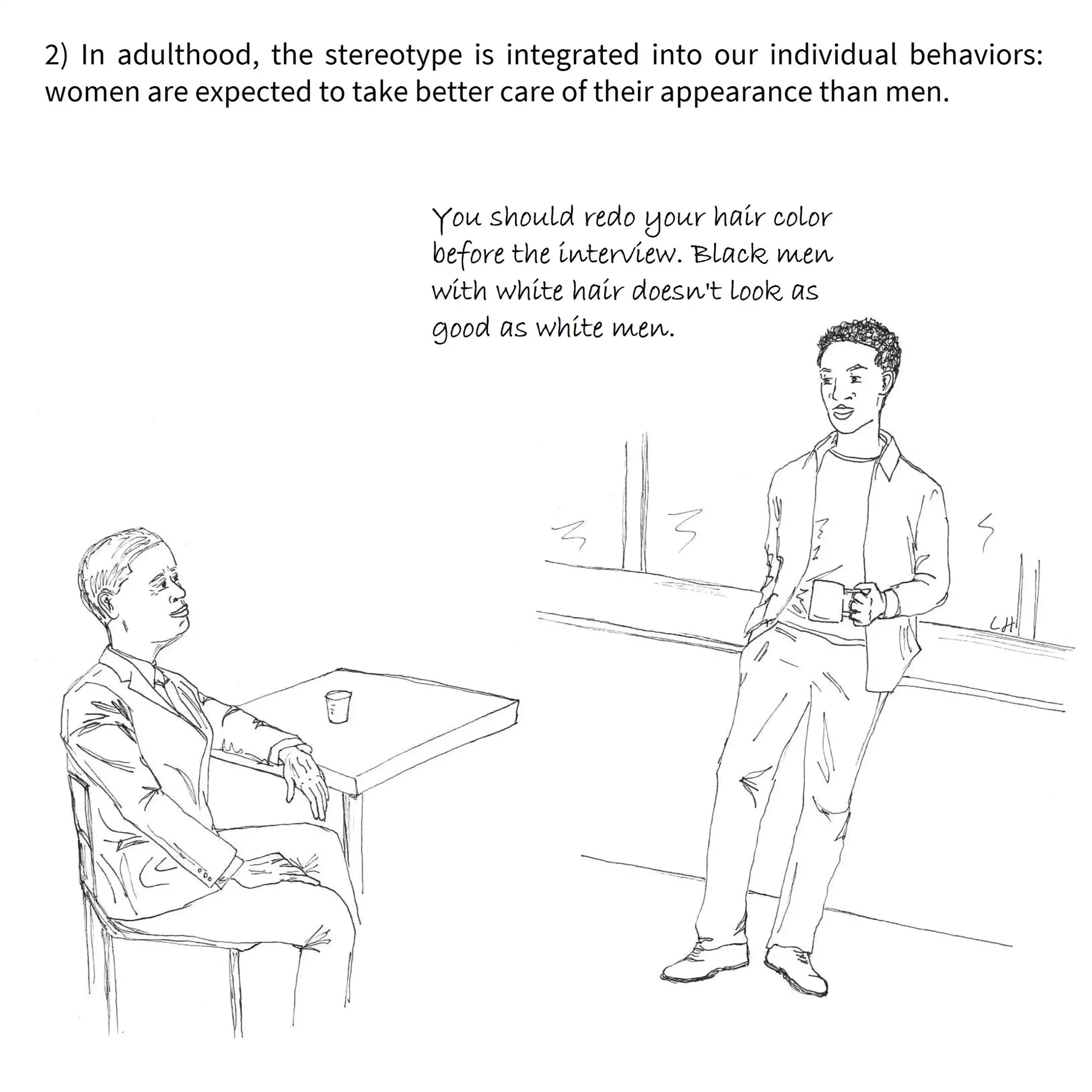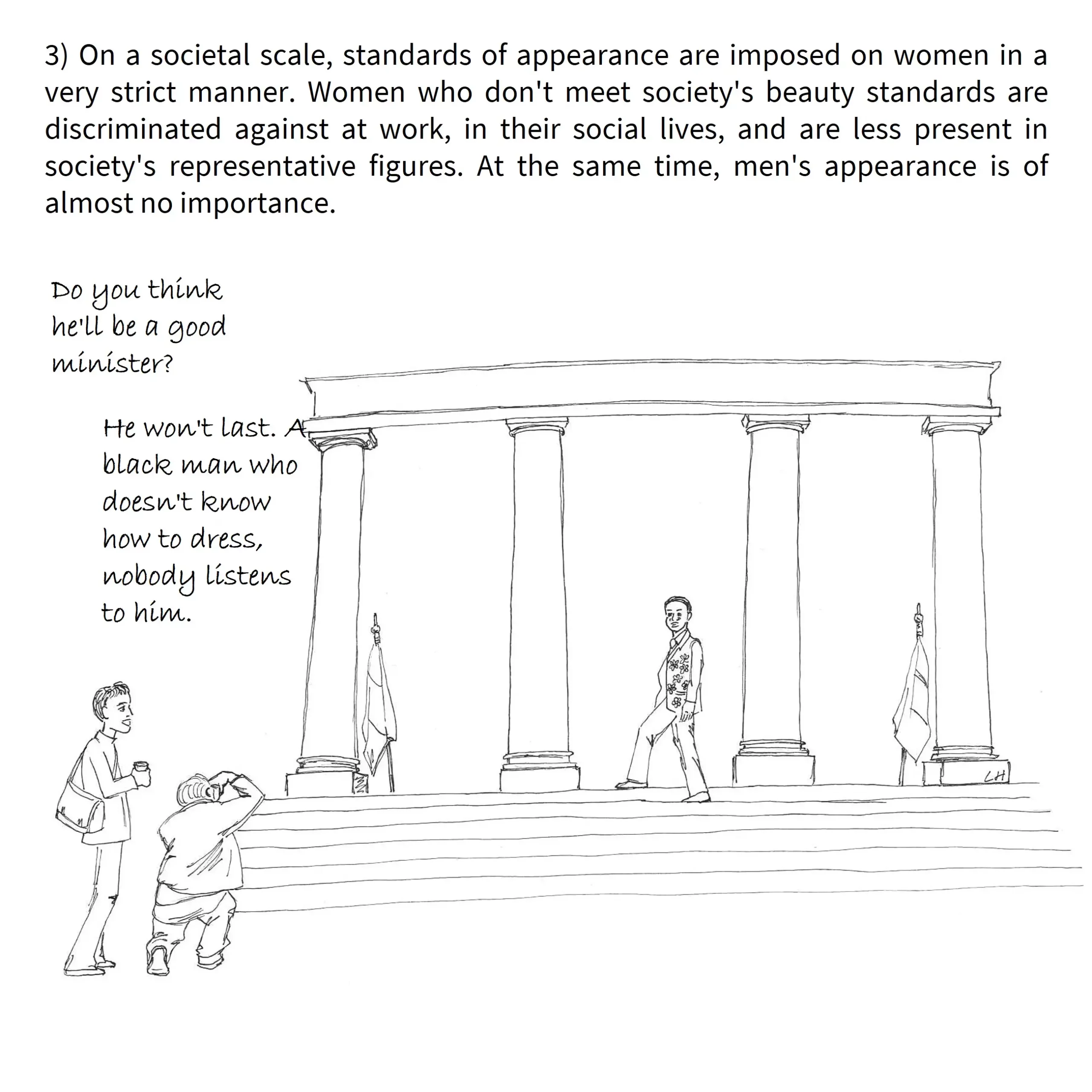I feel caught in a great net. An invisible net. A net that surrounds us all and prevents us from thinking freely. We can’t see it, but its shadow clouds our minds. This net is sexism, ordinary sexism.
Men and women alike, we all grow up with stereotypes. They are inoculated into us by our early experience of life in society. Once integrated, these stereotypes create biased individual behaviors, even among those who think they’re not sexist. Once generalized, these individual behaviors generate an inegalitarian societal system that concerns us all.
Since the net is invisible, I suggest we use our anti-racist reflexes to make it visible through the illustrations that follow : let’s replace the word “women†or “girls†with “blacks†and see whether we find the comment racist or not. It’s an imperfect comparison, but it does have the merit of making certain situations striking.
I find it a powerful tool for raising awareness of the scope of sexist remarks : many people minimize the psychological impact of these words, saying that those who are outraged by them are overdoing it.
By transposing racism onto sexist situations, we can better understand the violence of certain words.
March 8, Women’s Rights Day, is approaching. To all those in a position to do so, point to the net and tear it apart together.
We need to fight stereotypes at all ages, but particularly in childhood, so that young women can acquire the skills they’ll otherwise lack later on, and give the impression that the stereotype is true.
It’s often said that nowadays there’s no difference, that children freely express their interests, that little girls choose to play with a doll without constraint.
But I’ve read that the feeling of belonging to a gender is established between 18 and 24 months of age*. It’s at this age that little girls everywhere see women looking after children (daycare, nannies, mothers…) and being caring and gentle. If, from the age of 2, they play with dolls, it’s not always by natural inclination, it’s undoubtedly often by imitation of a model. A model of gendered society, caught in a net.
The important thing is to have a choice. As long as we’re in the shadow of the net, we won’t have that freedom. To tear the net apart, you first have to see it. I invite you to turn on your stereotype detector, and to do so, if you wish, use the transposition with racism, replacing “women” with “black” in sentences and contexts where doubt hangs in the air : if there’s racism, there’s sexism.
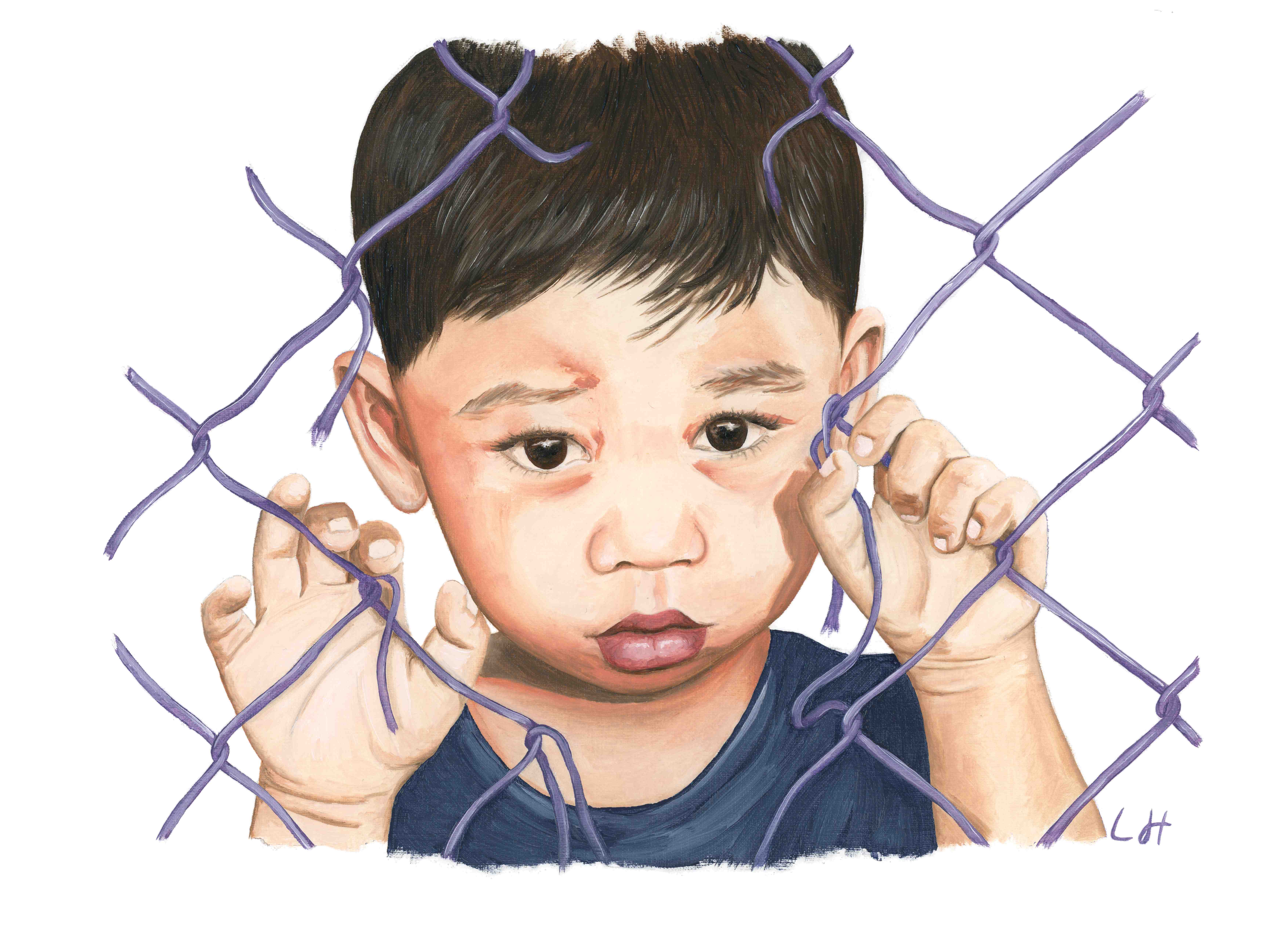
See you soon.
Lucile
*Yoan Mieyaa, Véronique Rouyer and Alexis Le Blanc, “La socialisation de genre et l’émergence des inégalités à l’école maternelle : le rôle de l’identité sexuée dans l’expérience scolaire des filles et des garçons”, L’orientation scolaire et professionnelle [Online], 41/1 | 2012, Online since 07 March 2015. URL: http://journals.openedition.org/osp/3680
PS : You can follow me on instagram, pinterest, facebook or linkedIn or subscribe to newsletter to get the articles directly in your mailbox.

